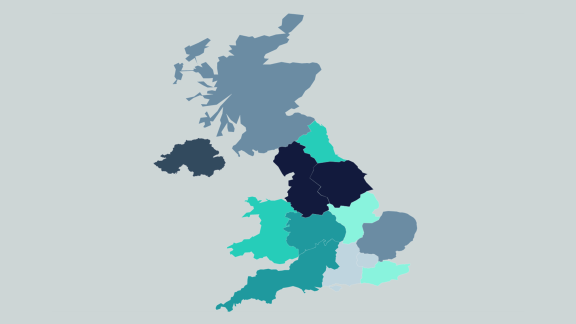Introducing learning and pastoral support workers at Portsmouth Hospitals

Overview
Portsmouth Hospitals University NHS Trust is a large acute trust that serves a large population around Portsmouth and Hampshire. Antony Eneas, professional education lead, and Jill Pallister, professional education manager at Portsmouth Hospitals University NHS Trust decided to introduce a new band three role - the learning pastoral support worker - to be a point of contact for new healthcare support workers.
Key benefits and outcomes
- Pastoral support is most associated with preceptorship but is less common for healthcare support workers, or anyone in bands 2-4.
- The link between education, HR, and the workforce is strengthened. The learning from this experience has filtered through the organisation and plays an important part in the recruitment and retention of all professionals to provide the appropriate support.
- Feedback from staff that engaged with their learning and pastoral support worker was positive. New staff said they found it beneficial to have a single point of contact.
What the organisation faced
The professional education team at Portsmouth typically looks after the training needs of nurses, apprentices, student nurses, and allied health professionals, as well as healthcare support workers.
Following a large recruitment event that took place in 2021, the team reviewed the provision of support that was available for new healthcare support workers. identifying that there was not sufficient resource available for a large number of new recruits, they explored opportunities for developing mechanisms to ensure new starters felt supported to deliver safe, effective care to patients and to achieve their care certificate.
As a result of funding from NHS England, to accelerate healthcare support worker recruitment in the middle of the pandemic, they established this new role.
What the organisation did
By researching other organisations, they found similar roles primarily within schools and the education system, where pastoral roles are common. This role in education exists to work alongside teaching staff, parents, and pupils and provides 1:1 mentoring role to pupils.
The professional education team at Portsmouth put forward the idea of adapting this role into a post that could be utilised in clinical practice. The vision for the learning and pastoral support worker role was to provide new healthcare support workers with pastoral support and help with their onboarding and reduce attrition in the initial stages of employment.
Thinking about the types of skillsets the new role would need, led to the identification that an experienced healthcare support worker would be best placed to undertake the role; as an individual who could provide a unique insight into the role, expertise, and guidance to a brand-new healthcare support worker.
New healthcare support workers had a dedicated colleague who would support them by teaching them aspects of the role, provide support in practice and work alongside them if required. The learning pastoral support workers act as a conduit between the initial application stage, all the way through to the first six to twelve months in the organisation.
The hospital was divided up into three areas and the three learning and pastoral support workers had responsibility for their areas covering as required. Our healthcare support workers in each area had a designated individual to go to for pastoral support. The learning and pastoral support workers could signpost to services as required for example health and wellbeing, chaplaincy as well as addressing and alleviating any concerns the healthcare support workers may have.
When the role was first advertised, the brief given to the candidates was quite broad, which allowed the role to evolve and develop over time responding to the needs of the organisation. With the changes experienced by the organization during the pandemic and beyond, the role could target support in specific areas as required.
Results and benefits
Feedback from staff who engaged with their learning and pastoral support worker was positive. New colleagues said they found it beneficial to have a single point of contact.
Pastoral support is most associated with preceptorship but is less common for healthcare support workers, or anyone within bands 2-4. Having someone to guide them through the care certificate whilst dealing with a pandemic was invaluable.
The link between education, HR, and the workforce is strengthened. The learning from this experience has filtered through the organisation and plays an important part in the recruitment and retention of all professionals to provide the appropriate support.
Anecdotally, a colleague who was finding the care certificate difficult completed it with the support of the learning and pastoral support worker and said without that support, it would have been challenging.
Overcoming obstacles
- The biggest challenge was writing the job description and identifying who would best suit this new role.
- At the beginning of the recruitment period for new healthcare support workers, a large volume of individuals applied due to furlough. Notably, once the industry reopened, some colleagues returned to previous careers. The feedback from those colleagues was very positive regarding the care and support they received from their learning and pastoral support worker.
- Short-term funding is challenging, currently the roles are temporary, and we are developing a business case to make them substantive.
Takeaway tips
- Give a clear expectation of the role.
- Ensure clear reporting lines and clinical supervision.
- Empower and support the learning and pastoral support workers to manage situations and decision-making as appropriate.
Future plans
There is significant evidence that supports a good induction is beneficial for increasing retention and reducing attrition. The team is reviewing its induction programme, developing a preceptorship style programme, and expanding its continuing professional development opportunities for all support workers.
Contact Details
For further information, please contact Antony Eneas, Professional Education Lead at Portsmouth Hospitals University NHS Trust via email at antony.eneas@porthosp.nhs.uk



